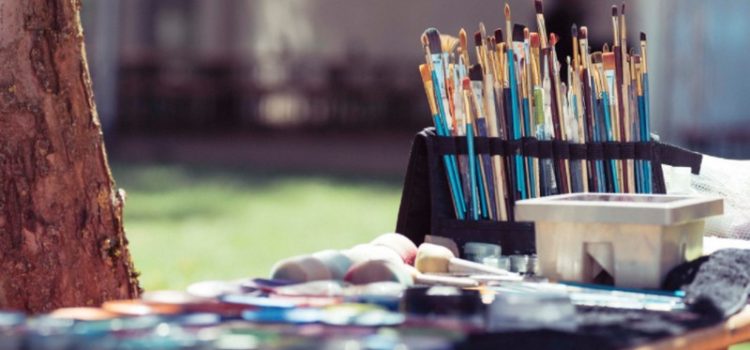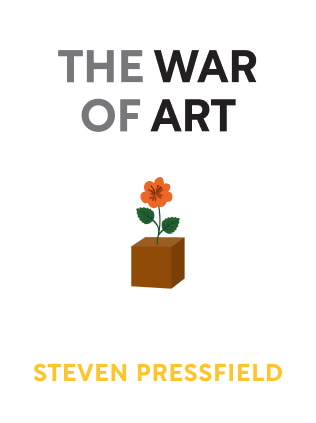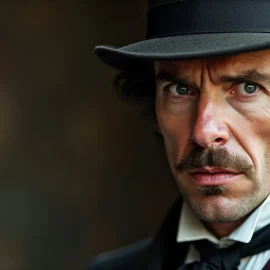

This article is an excerpt from the Shortform book guide to "The War of Art" by Steven Pressfield. Shortform has the world's best summaries and analyses of books you should be reading.
Like this article? Sign up for a free trial here .
What are the personality traits of a true artist? How can changing your attitude help you achieve creative success?
If you want to be a true artist, there are certain personality traits you’ll need to have, including patience, resiliance, and confidence. Understanding the typical traits of a true artist can help you develop positive qualities that will help you succeed.
Keep reading to find out the traits of a true artist.
The Traits of a True Artist
Patient—You understand that real work takes time. You know that rushing to finish a project or being overambitious will cause you to flame out. You make time for your muse to inspire you and the stars to align. You know that slow and steady wins the race and that your job is to keep working. The finish line will appear when it’s ready to appear.
Organized—You like for things to be in order. Disorder creates chaos, and you don’t want a chaotic environment to create a chaotic mind. You keep your workspace tidy so your muse can move about freely.
Focused on craft—You know your job is to focus on craft and leave the art to the muse. You don’t wait for inspiration to start working. You study technique and practice your craft so you are ready to perform to the highest standard when inspiration eventually comes. You don’t concern yourself or others with the mysticism behind the art. You keep your head down and work.
Realistic about fear—You know there’s no such thing as destroying fear forever. You don’t wait until fear subsides to start working. You understand that fear is the other side of the artistic coin. You march forward scared to death because doing the work is what diminishes fear.
Unflappable—You know resistance is working hard to find ways to make you give in and quit, so you never do. You know the moment you give in, resistance regains its power. You do the work without fail and never make excuses for why you can’t work.
Resilient—You know there is no perfect scenario or guaranteed success in your chosen field. You don’t let adversity or barriers stop you from moving forward. You take the hits as they come and keep working.
Prepared—You understand that resistance is a formidable opponent and are prepared for its assault. You are ready for whatever typical or utterly unique ways resistance will try to derail you and take each one in stride. Your goal is not ultimate victory but the ability to maintain composure and keep believing in yourself and the work.
Humble—You don’t brag about your work. You let the work speak for itself. You use your skills to enhance the work, not to show how talented you are.
Studious—You respect technique and the value of studying the work of those who came before you. You don’t pride yourself as a master of your craft. Instead, you continue seeking knowledge so you can understand your craft fully and have all your skills at your disposal. You understand that by sharpening your skills, you open the door wider for the muse to provide genius.
Open to help—You never assume you know all there is to know about your craft. You recognize that revelations happen when you open yourself up to assistance from others, and you ask for help when you need it.
Detached—You see your talent and skills as instruments that help you work, not things that define you. You feel grateful for the tools you’ve been given. You identify as someone who works to make art, not as the art itself.
Realistic about failure—You know criticism is part of the artistic process. You don’t take it personally, but rather see it as a way to learn and grow. A rejection will not derail you because you know that’s what resistance wants. You recognize that editors and critics don’t know you and that their thoughts are about the work, not your character. You know that a fear of failure will stop you from working, so you accept the inevitability of failure. You accept that your best is good enough and that the reception of that work is out of your hands.
Impervious to humiliation—You do not let humiliation stop you from working. You endure insults and adversity because you know resistance is waiting for you to give up. You recognize that your artistic space is untouchable unless you allow it to be touched. You pay your dues and keep working because you know it’s better than not working at all.
Self-confident—You don’t need the approval of others to feel good about yourself and your work. You understand that opinions are subjective and often disingenuous. You recognize that critics are the external representation of resistance and neither have a bearing on whether you continue to work. You determine your own worth and keep working.
Adaptable—You are willing to leave your comfort zone and allow the muse to lead. You notice when your way is not the best way and follow the muse, even if it’s into strange territory.
Aware of your limitations—You recognize that your job is to do the work and hire other professionals to handle what you can’t. You hire agents, publicists, and editors to support your work and respect their contributions.
Embody the above traits of a true artist in order to thrive creatively.

———End of Preview———
Like what you just read? Read the rest of the world's best book summary and analysis of Steven Pressfield's "The War of Art" at Shortform .
Here's what you'll find in our full The War of Art summary :
- Why creative people feel resistance when approaching their true work
- How to break down the wall that holds you back from reaching your potential
- How to tap into your creative power and honor the genius you were born with







Excuse me please, but this so absolutely far from true. The traits of a true artist are instability and pain. Suffering, and creatively overcoming that suffering, is the foremost trait of an artist. You write as though the self help books your profile indicates you’ve read provided your guidelines to determine what it means to be an artist. A true artist doesn’t follow a formula ar method, nor do they attempt to critically deconstruct others work in an attempt to “understand” their craft. A true artist defines their craft. Your description simply indicates how one might succeed in feigning artistry in our society. -Eli